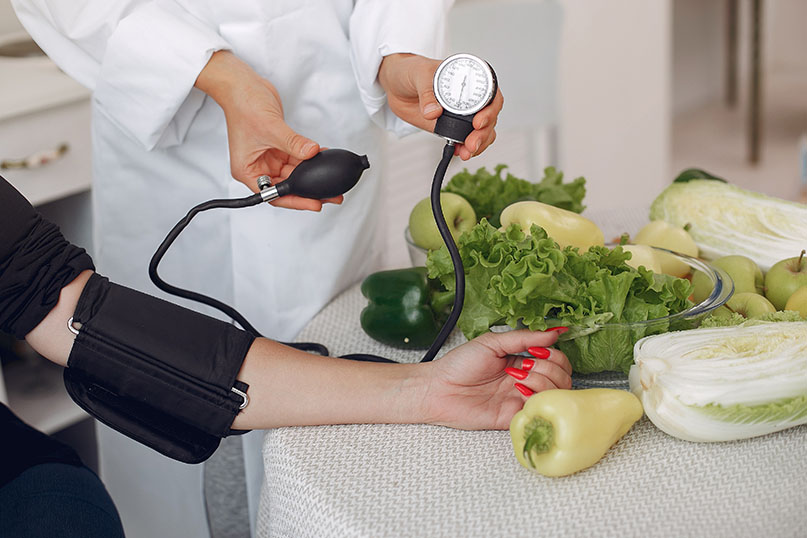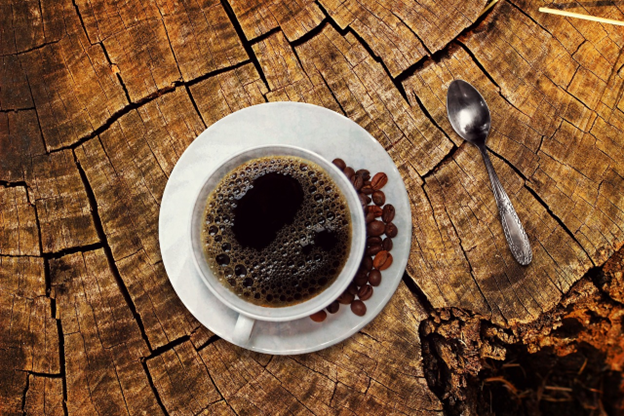In today’s fast-paced world, maintaining a balanced low-stress routine with healthy eating habits is not too easy. Due to this, high blood pressure has become a common health concern for many individuals, be it young or old. While there are prescribed medicines to control hypertension, there is growing interest amongst people to explore unconventional remedies. This is where the role of vitamins come into play in regulating blood pressure levels. In this article, we delve into the world of vitamins to lower blood pressure naturally.
High blood pressure is a common condition that affects the body’s arteries. It’s also called hypertension. If you have high blood pressure, the force of the blood pushing against the artery walls is consistently too high. The heart has to work harder to pump blood. It puts extra strain on the heart and blood vessels, increasing the risk of serious health problems. Lifestyle factors such as poor diet, lack of exercise, obesity, and stress play significant roles in the development of hypertension.
The Role of Vitamins in Blood Pressure Regulation
When it comes to the question of choosing vitamins to help lower blood pressure, there are various options. While we cannot say that these vitamins are substitutes for the prescribed medication, they may complement healthy lifestyle choices and contribute to better blood pressure management. Let’s have a look at a few vitamins which help reduce blood pressure.
Vitamin D
Also known as “sunshine vitamin”. These vitamins are absorbed along with fats in the diet and are stored in the body’s fatty tissue and in the liver. It has a crucial role to play in the renin-angiotensin system, which is basically the body’s intrinsic system to regulate blood pressure. In other words, the vitamin plays a crucial role in defining volume of blood in your arteries and veins by influencing how wide or narrow they might be at any given point. As per the studies and research, people with Vitamin D deficiency are more likely to develop hypertension. Certain habits that might help in managing Vitamin D deficiency include spending time outdoors, consuming Vitamin D rich foods like fatty fish, fortified dairy products (meaning all milk products which contain added nutrients) and egg yolks.
Vitamin C
It is a water-soluble vitamin which is carried to the body’s tissue through the blood, but not stored in the body, due to which it becomes important to consume it daily through food or supplements. Vitamin C helps protect blood vessels from damage, thereby promoting healthy blood flow. Moreover, studies also show that Vitamin C supplementation may lead to slightest drop in the blood pressure, particularly in individuals with hypertension or those at risk of developing it. Citrus fruits, strawberries, kiwi and bell peppers are excellent sources of Vitamin C.
Vitamin E
Vitamin E is fat soluble vitamin which is absorbed along with fats in the diet and is stored in the body’s fatty tissue and in the liver. It is one of the strongest natural antioxidant that may help lower blood pressure by reducing oxidative stress (an imbalance between the production of free oxygen molecules which can damage cells, and the ability of the body to detoxify their harmful effects) and improving blood vessel function. While studies on Vitamin E supplementation and blood pressure have produced mixed results, incorporating foods rich in Vitamin E, such as nuts, seeds, and vegetable oils, into your diet can still provide benefits to your heart and blood vessels. If you are looking for vitamins for low blood pressure, this one is a definite must.
Vitamin B6, B9 (Folate), and B12
B vitamins play a crucial role in maintaining the health of your heart and blood vessels. The deficiencies in these vitamins are connected to the increased risk of hypertension. Vitamin B6 helps regulate homocysteine levels, high levels of which are related to hypertension. Folate and Vitamin B12 are essential for the production of red blood cells. Homocysteine is an amino acid (building block of proteins) which is often associated with heart diseases. Foods which would be helpful and are considered good sources of B vitamins are leafy greens, legumes, fortified cereals (added vitamins & minerals) and lean meats which have relatively low fat content. Due to the healthy nature of food from which B vitamins can be attained, when it comes to vitamins to lower blood pressure, this family of nutrients are crucial.
Conclusion
While vitamins can potentially aid in lowering blood pressure and promoting overall cardiovascular health, it’s essential to remember that they are just one piece of the puzzle. A holistic approach to hypertension management, including regular exercise, stress reduction, a balanced diet rich in fruits and vegetables, and medication as prescribed by a healthcare professional, is crucial for the best results. Before starting any supplementation regimen, it’s advisable to consult with a healthcare provider to ensure safety and efficacy, especially if you have underlying health conditions or are taking medications.
By harnessing the power of vitamins and adopting a healthy lifestyle, individuals can take positive steps towards maintaining desirable blood pressure levels and safeguarding their long-term cardiovascular well-being.
Disclaimer
The information contained in this article is to educate, spread awareness in relation to hypertension and other diseases to the public at large. The contents of this article are created and developed by BPinControl.in through its authors, which has necessary, authorisations, license, approvals, permits etc to allow usage of this articles on The Website. The views and opinions expressed in this article are views, opinions of the respective authors and are independently endorsed by doctors. Although great care has been taken in compiling and checking the information in this article, The Website shall not be responsible, or in any way liable for any errors, omissions or inaccuracies in this article whether arising from negligence or otherwise, or for any consequences arising therefrom. The content of this article is not a substitute for any medical advice. The Website shall not be held responsible or liable for any consequence arising out of reliance on the information provided in the article.




